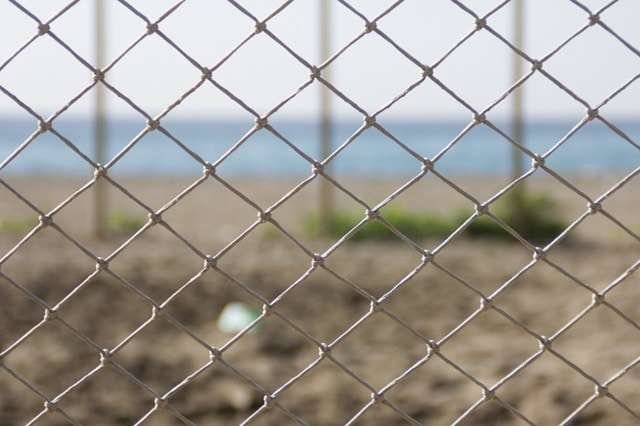When considering the installation of a fence, one of the most crucial factors to contemplate is the lifespan of the fencing materials. Different materials offer varying levels of durability, maintenance requirements, and longevity, which can significantly impact your choice. This guide aims to provide insight into the lifespan of various fencing materials, helping you understand what to expect and assisting you in making an informed decision for your property.
Wood Fences
Wood is a popular choice for fencing, renowned for its aesthetic appeal and natural look. However, wood fences can be quite tricky when it comes to lifespan. The longevity of a wood fence largely depends on the type of wood used, the climate it’s exposed to, and the level of maintenance provided.
On average, a well-maintained wood fence lasts 10 to 20 years. However, with proper staining, sealing, and regular repairs, some types of wood fences can even last up to 30 years.
Vinyl Fences
Vinyl is a synthetic material that has gained popularity in fencing due to its low-maintenance nature. It’s resistant to rotting, warping, and insect infestations, making it a long-lasting option.
On average, vinyl fences can last for 20 to 30 years, with minimal maintenance required. However, harsh weather conditions and improper installation can significantly impact its lifespan.
Aluminum Fences
Aluminum is a lightweight and durable material that offers excellent resistance to rust and corrosion. It’s also relatively low maintenance, making it a popular choice for residential and commercial properties.
With proper installation and occasional cleaning, aluminum fences can last for 20 to 30 years. However, exposure to harsh chemicals or extreme weather conditions can decrease its lifespan.
Chain Link Fences
Chain link fences are known for their durability and low maintenance requirements. They offer excellent resistance against rusting, rot, and insect damage. With proper installation and minimal maintenance, chain link fences can last 15 to 20 years. However, the quality of materials used during installation can impact its longevity.
Composite Fences
Composite fencing is a relatively new material that combines wood fibers and recycled plastic to create a durable and low-maintenance option. It offers excellent resistance against rotting, warping, and insect infestations. With proper care and maintenance, composite fences can last for 25 to 30 years.
How to Choose the Right Material?
When choosing fencing materials, it’s essential to consider several key factors. These include:
Durability –
This refers to how well fencing materials can withstand wear and tear, adverse weather conditions, and potential damage from pests. For example, vinyl and aluminum fences are highly durable and require little maintenance, while wood fences may require more upkeep to maintain their durability.
Maintenance requirements –
Some fencing materials require more maintenance than others. For instance, wood fences often need regular staining or painting, while vinyl and aluminum fences require little more than an occasional cleaning.
Aesthetics –
The fence’s appearance often plays a significant role in the decision-making process. Consider the look and feel you want to achieve. Wood fences offer a classic aesthetic, while materials like aluminum or vinyl offer a more modern look.
Cost –
The cost of fencing materials can vary significantly. Consider both the initial cost of the materials and installation, as well as the long-term costs of maintenance and potential replacement. Professionals like those at Stand Strong Fencing can do a cost evaluation to help you understand how much the project would cost.
Lifespan –
The lifespan of a fencing material is a vital factor to consider. As outlined in this guide, the longevity of a fence can range from 10 to 30 years, depending on the material used.
Environmental impact –
Consider the environmental impact of your chosen fencing materials. Composite fences, for example, are made from recycled materials, making them a more eco-friendly choice.
Local climate –
The local climate can significantly impact the lifespan and maintenance requirements of a fence. For instance, in areas with high humidity or rainfall, rot-resistant materials like vinyl or composite may be the best options.
Benefits of Properly Installed Fence:
A properly installed fence can provide numerous benefits, including:
- Security – Fences can act as a barrier against intruders and unwanted animals, providing an extra layer of security for your property.
- Privacy – Fences can also offer privacy, creating a more secluded and peaceful environment for you and your family.
- Property value – A well-maintained and attractive fence can significantly increase the value of your property.
- Safety – Fences can also be a safety measure, especially for families with young children or pets. It can prevent them from wandering off and keep them safe within the boundaries of your property.
Conclusion:
In summary, the lifespan of fencing materials can greatly impact their suitability for your property. Consider the factors mentioned above when choosing a fence, and properly maintain it to ensure maximum longevity.
By understanding the lifespan of different fencing materials, you can make an informed decision and choose a fence that best meets your needs and preferences.
Remember, a well-installed and maintained fence not only adds to the aesthetic appeal of your property but also provides security, privacy, and safety for you and your loved ones.









